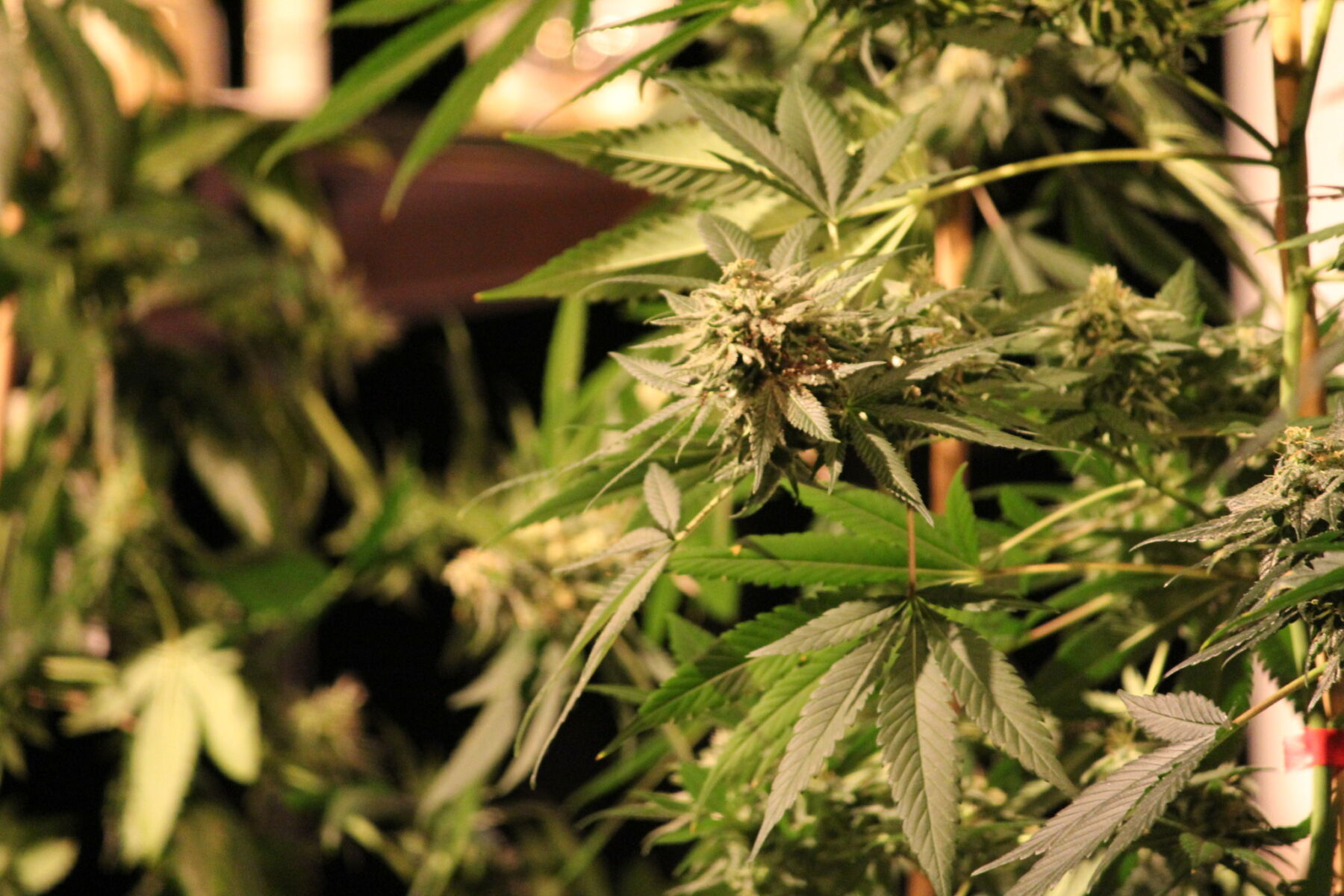Medical cannabis vs traditional treatments
Find out the potential benefits of medical cannabis in contrast to traditional therapies

For centuries, people have been seeking ways to alleviate pain and manage various health conditions. While traditional treatments have undoubtedly played a critical role in the evolution of medicine, the world has recently witnessed a resurgence in the utilization of alternative therapies. Among these, medical cannabis has become an increasingly popular option. In this article, we will dive into the world of medical cannabis vs traditional treatments, examining their differences, potential advantages, and applicability across a range of health concerns.
The rise of medical cannabis

In recent years, medical cannabis has gained significant traction as a viable alternative to conventional therapies. This shift can be attributed to its potential health benefits and the growing body of scientific evidence supporting its use. As more countries legalize medical cannabis and the stigma surrounding it dissipates, the discussion around its therapeutic potential has become increasingly prominent.
Traditional Treatments and their Limitations

Traditional treatments have long been the mainstay of healthcare, delivering effective solutions for various health conditions. However, they are not without their limitations. As we compare the limitations of traditional treatments to medical cannabis, it is important to note that medical cannabis is not a one-size-fits-all solution. Nevertheless, understanding the shortcomings of conventional therapies can highlight the potential advantages of considering medical cannabis as an alternative.
1. Side Effects
One of the primary limitations of traditional treatments is the potential for side effects. For instance, prescription medications, such as opioids for pain relief or antidepressants for mental health conditions, can cause a range of unwanted side effects, including drowsiness, dizziness, constipation, and nausea. In comparison, medical cannabis is generally associated with fewer and milder side effects. While some individuals may experience dry mouth, dizziness, or increased appetite, these effects are often considered more manageable than those associated with conventional medications.
2. Drug Interactions
Traditional treatments, particularly prescription medications, may interact with other drugs, leading to reduced effectiveness or increased risk of adverse effects. This can be particularly concerning for individuals who require multiple medications to manage their health conditions. Medical cannabis, on the other hand, has a relatively low potential for drug interactions, making it a safer alternative for those concerned about the possible risks of combining medications.
3. Addiction and Overdose
The risk of addiction and overdose is a significant limitation of certain traditional treatments, particularly opioids. The opioid crisis has highlighted the dangers of prescription painkillers, with countless individuals becoming addicted to these medications and facing potentially life-threatening consequences. In contrast, medical cannabis presents a lower risk of addiction and virtually no risk of fatal overdose, making it a more appealing option for pain management and other health concerns.
4. Limited Efficacy
In some cases, traditional treatments may prove ineffective for certain individuals or health conditions. For example, some patients with epilepsy may not respond well to conventional antiseizure medications, leaving them with limited options for managing their condition. Medical cannabis, particularly CBD, has shown promise in reducing seizure frequency and severity in specific forms of epilepsy, providing a potential alternative for those who have not found success with traditional treatments.
5. Cost and Accessibility
Traditional treatments can be expensive, particularly for those without comprehensive health insurance coverage. Prescription medications, surgeries, and ongoing therapies can quickly become a financial burden for many patients. In some cases, medical cannabis may present a more cost-effective solution, particularly for individuals who are unable to bear the financial strain of conventional treatments.
In contrast, medical cannabis has been found to be generally well-tolerated, with few severe side effects. Furthermore, it presents a lower risk of addiction compared to many prescription medications, particularly opioids. As such, medical cannabis has emerged as a promising alternative for those seeking relief from various conditions without the risks associated with traditional treatments.
The Power of Cannabinoids
A unique composition of chemical compounds known as cannabinoids serves as a key factor that distinguishes medical cannabis from traditional therapies. The two most well-known cannabinoids, tetrahydrocannabinol (THC) and cannabidiol (CBD), have been widely studied for their potential health benefits. While THC is primarily responsible for the psychoactive effects associated with cannabis, CBD has garnered attention for its therapeutic applications without inducing a “high.”
These cannabinoids interact with the body’s endocannabinoid system (ECS), a complex cell-signaling system that plays a crucial role in regulating various physiological processes. By modulating the ECS, medical cannabis has the potential to address a wide range of health concerns, including chronic pain, inflammation, anxiety, and epilepsy.
The Benefits of Medical Cannabis vs Traditional Treatments
1. Pain Management
Chronic pain affects millions of people worldwide, and conventional treatments, such as opioids, have been linked to addiction and overdose. Medical cannabis, on the other hand, has shown promise in managing pain with a lower risk of dependency. Moreover, it may also help reduce inflammation, which is often a contributing factor to chronic pain.
2. Mental Health
Traditional treatments for mental health conditions like anxiety and depression often involve prescription medications that can cause unwanted side effects. In contrast, medical cannabis has demonstrated the ability to alleviate symptoms of anxiety and depression in some patients, without the risk of severe side effects commonly associated with conventional medications.
3. Epilepsy
Epilepsy is a neurological disorder characterized by recurrent seizures. While traditional treatments, such as antiepileptic drugs, can help manage the condition, they may not work for everyone and can cause adverse side effects. Medical cannabis, particularly CBD, has demonstrated potential in reducing the frequency and severity of seizures in certain forms of epilepsy, offering a promising alternative for those who do not respond to traditional therapies.
4. Cancer Treatment
Cancer treatments like chemotherapy and radiation therapy can cause a range of side effects, including nausea, vomiting, and loss of appetite. Medical cannabis has shown potential in alleviating these symptoms and improving the quality of life for patients undergoing cancer treatment. Furthermore, some studies suggest that cannabinoids may possess anti-cancer properties, but further research is necessary to validate these findings.
The Future of Medical Cannabis
While the debate around medical cannabis vs traditional treatments continues, it is essential to recognize that both approaches have their merits and may be suitable for different individuals and circumstances. As researchers conduct more studies and the medical community increasingly embraces the potential benefits of medical cannabis, we can anticipate a deeper understanding of its therapeutic applications and its integration into mainstream healthcare.
In conclusion, medical cannabis offers a promising alternative to traditional treatments for a variety of health concerns. Its potential benefits, coupled with fewer severe side effects and a lower risk of addiction, make it an attractive option for patients and healthcare practitioners alike. By staying informed and considering all available treatment options, individuals can make the best decisions for their health and wellbeing.
If you want further information about medical cannabis, and considering to go to a cannabis clinic, check out our guide on the process of cannabis clinic consultation in Thailand.
Latest Thailand News
Follow The Thaiger on Google News:


























